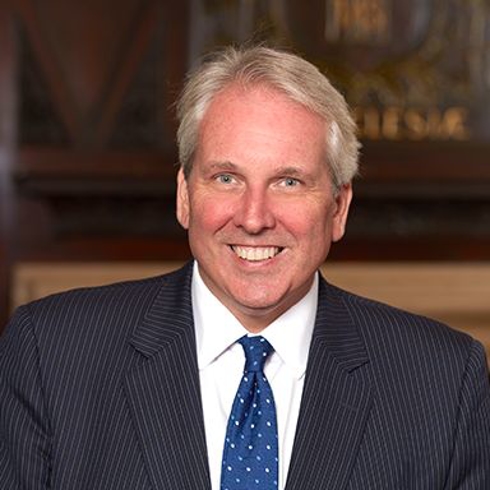
“Sexual abuse cases, such as Harvey Weinstein and Sean ‘P. Diddy’ Combs, are not just about sex. They are about power, manipulation, and the control of another person; usually someone in a subordinate position. I have been representing survivors of such abuse for the majority of my legal career. I am proud to represent them and assist them in regaining their power, their dignity, and their lives.”
When pursuing justice in civil sexual assault cases, experience and resolve matter. Attorney Thomas Giuffra, a senior partner at Rheingold Giuffra Ruffo Plotkin & Hellman LLP, is nationally recognized for his representation of survivors in high-profile cases, including his involvement in litigation against Harvey Weinstein, Sean ‘P. Diddy’ Combs, Dr. Darius Paduch and Dr. Robert Hadden.
Thomas Giuffra was among the select attorneys who represented Weinstein accusers in civil court, challenging a proposed $25 million settlement as inadequate and unjust. Giuffra strongly advocated for survivors’ rights, telling Reuters, “The idea that people who are culpable are getting a release from Harvey Weinstein is shameful.” His efforts, alongside those of other advocates, raised important objections that helped reshape how civil settlements for survivors are scrutinized and structured.
As profiled in his Lawdragon interview, Giuffra has long been known for combining skilled trial advocacy with trauma-informed representation. He notes that civil justice is “sometimes the only way a victim can regain power over what happened to them.”
For survivors, having an attorney who understands the legal nuances of civil litigation and the emotional impact of abuse can make a vital difference.
The “burden of proof” or “standard of proof” is the level of certainty required to prove a case in court.
In civil cases, the plaintiff brings the lawsuit and has the burden to prove their case. The “preponderance of the evidence” is the standard of proof applied in civil cases. The plaintiff must show–with compelling evidence and at least 51% certainty—that a sex crime occurred.
In criminal cases, on the other hand, the state must prove “beyond a reasonable doubt” that a crime occurred based on the statutory definition of the crime in question. This is a much higher standard of proof by comparison.
It’s important to note that a criminal conviction is not required to file a civil lawsuit. It can proceed regardless of the outcome of the criminal case for the same assault. While there may not be sufficient proof to show guilt beyond a reasonable doubt, the same offender may still be held liable civilly.
Evidence that can be introduced to prove civil sexual abuse claims confirms that the assault occurred, while other types of evidence show how the assault impacted your life.
Evidence in civil sexual assault cases might include:
Though it is true that a criminal case is not a prerequisite to a civil case, evidence gathered in either investigation may be used in both. Your lawyer will be sure to retrieve the evidence from any corresponding criminal investigation and trial.
If you would like to speak with our sexual abuse and assault lawyers in New York, complete our contact form or call (212) 684-1880 to schedule a free consultation with our knowledgeable legal team.
Offers free counseling, support groups and other resources for survivors.
Offers a national hotline and online chat support, available 24/7, plus other resources.
Yes. In New York, you can file a civil lawsuit for sexual assault even if there is no criminal conviction—or if criminal charges were never filed. Civil and criminal cases operate under different standards, purposes, and legal burdens of proof.
This lower burden of proof often makes civil court more accessible for survivors who may not have sufficient evidence to meet the higher standard required for a criminal conviction, or where law enforcement declined to bring charges.
The duration of a civil sexual assault case in New York varies significantly depending on several factors, including the complexity of the case, the number of parties involved, and whether the matter settles out of court or proceeds to trial. However, a general timeline can help you understand what to expect.
This stage involves consultation with an attorney, collection of evidence, and drafting of a complaint. In many cases, demand letters are sent to defendants before filing a formal lawsuit, sometimes resulting in early settlement discussions.
Once a lawsuit is filed in New York civil court, the discovery phase begins. This includes:
Discovery can be lengthy, especially in cases involving institutions, multiple defendants, or historical abuse. Defense attorneys may attempt to delay proceedings through procedural motions.
After a verdict, either party may appeal. This can add another 6–12 months or more to the process.
In total, a civil sexual assault lawsuit in New York may take 1 to 3 years, with complex cases taking even longer.
Filing a civil lawsuit for sexual assault is about more than money. It is often a powerful step toward reclaiming control, achieving public accountability, and raising awareness. Survivors can name their assailants, call out institutional negligence, and contribute to broader cultural and legal reforms.
At Rheingold Giuffra Ruffo Plotkin & Hellman LLP, we believe in trauma-informed advocacy. Our attorneys collaborate with mental health professionals to ensure our clients are supported throughout the legal process.
We also invest significant resources in case development, including:
We understand that no two survivors or cases are alike. Whether your assault occurred recently or years ago, you deserve to be heard, believed, and represented with integrity.
If you are considering filing a civil sexual assault lawsuit in New York, we encourage you to contact us for a confidential consultation. Our team is committed to protecting your rights and fighting for the justice you deserve—on your terms.
Send us a message or call (212) 684-1880 for a free consultation with our compassionate New York attorneys.